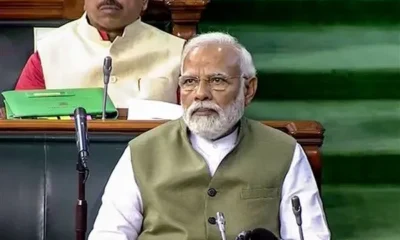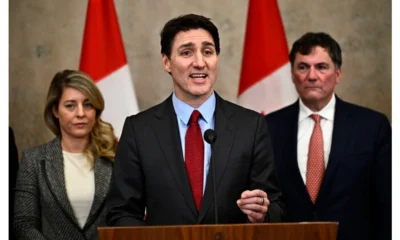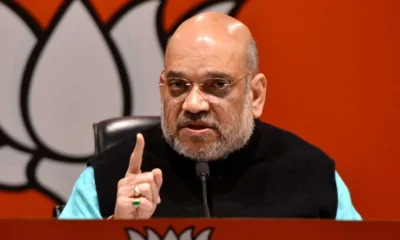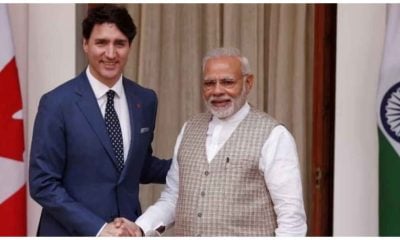‘Fake news’, ‘paid media’ and ‘presstitute’ are terms one comes across frequently in India. However, while bias in news reporting and political lineage of media organizations are areas of serious debate in India, a survey conducted by American think tank Pew Research Centre says , a significant majority of Indians believe that news reporting by their mainstream media is fair and objective.
Also, Indian media performs well in terms of almost all parameters compared to their counterparts in the US, said the survey.
Releasing details of its survey, Pew said as many as 65 per cent of Indians consider that their news media is covering political issues ‘fairly’.
The figure stands 72 per cent for government leaders and officials, and 80 per cent believe that the media is “accurately” covering the news and 72 per cent of them believe the most important news of the day are being covered fairly by the Indian media.
That, however, is qualified by another aspect brought out in Pew survey. India also stands out as the one country where more say it is sometimes acceptable for a news organization to favour one political party than those who say it is never acceptable. Among adults Indians, 41% say it is acceptable for news organizations to, at times, favour one political party, compared with 25% who say it is never acceptable. A third of Indians express no opinion on the matter.
This compares unfavourably with global outlook. Despite differences in news media and political structures, clear majorities in 35 of the 38 nations surveyed agree that it is never acceptable for a news organization to favour one political party over others when reporting the news. Globally, a median of three-quarters (75%) say such media bias is never permissible, compared with 20% who say it is sometimes acceptable.
While Indians consider the media to be more or less fair in covering political issues, the people of the US showed distrust in the coverage of political issues by the media. This is evident in the survey whereas 65 percent Indian respondents consider the media to be fair, while only 47 percent of Americans trust their media in political reporting.
In the area of news about government leaders and officials, 72 percent Indians believe media is doing a good job whereas only 58 percent Americans think so.
About 80 percent people in India believe that the news media in the country are accurate, while only 56 percent of Americans believe so.
In the coverage of most important news events, 72 percent Indians are satisfied with the news media and 61 percent of Americans also shared the same view in the survey.
While 47 percent people of the US agreed that the news media in the country is doing well at reporting, 65 percent of people in India agreed with the media in the country in terms of their reporting.
The survey was conducted among 41,953 respondents in 38 countries from Feb. 16 to May 8, 2017. In addition, the study also focuses on individuals’ use of the internet and social media to get news, as well as the types of news people, follow.
“Digital technology is influencing news habits across the globe, though its use is still far from universal. Overall, a median of 42% among the 38 countries surveyed says they get news on the internet at least once a day. In 14 countries, half or more adults get news online daily,” said the report.
Pew said a global median of 35 per cent say they use social media to get news daily, while 13 per cent use it less than once a day to get news. About half (52 per cent) say they never use social networking sites to get news.
In India, notably, only 15 per cent said they use social media to get daily news. There is a disparity in the gender: Only eight per cent of the women in India said they rely on social media to get daily news, as against 22 per cent by men.
The survey also found that people are much less interested in news about other countries (global median of 57 percent). In only six countries do more than two-thirds say they pay close attention to news about the rest of the world. People outside of the US express a similarly low level of interest in news specifically about the US.
According to the latest Pew survey, across other regions, India stands out for its percentage that follows local news very closely (61 per cent), against 40 per cent in the US and the global median of just 37 per cent.
In most of the countries surveyed, interest in local news is equal to or lower than interest in national news. People follow local news more than national news in just two countries – India and Indonesia, Pew said.
On the other hand, a global median of 57 per cent say they follow international news closely, and just 16 per cent follow it very closely. In India the figure stands at 53 per cent and 20 per cent respectively.
Only 16 per cent of the Indian respondents said that they follow the US news very closely, against the highest 28 per cent by people in Canada.


 LATEST SPORTS NEWS17 hours ago
LATEST SPORTS NEWS17 hours ago
 India News17 hours ago
India News17 hours ago
 India News18 hours ago
India News18 hours ago
 India News17 hours ago
India News17 hours ago
 Latest world news11 hours ago
Latest world news11 hours ago
 India News9 hours ago
India News9 hours ago















